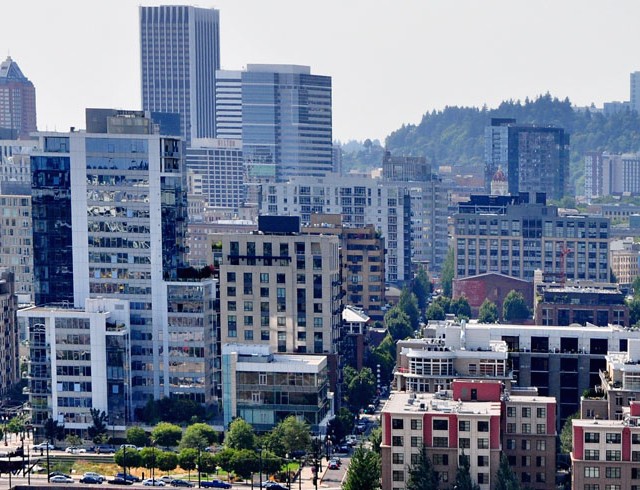
Project was completed while Reshape staff were with Compass Resource Management. Reshape spun out of Compass in 2013.
Reshape and FVB (US) conducted a Neighborhood Energy Utility Feasibility Study for the North Pearl District in Portland. The study examined the viability of a district heating and cooling utility for the North Pearl and several adjacent expansion areas, including the Conway and Port Office redevelopment projects.
We considered a range of energy sources. Waste heat recovery and bioenergy (including potential co-generation) proved the most promising. The analysis suggested a build-out capital cost of $50 – 100 million, depending on the specific technology scenario pursued, and a favourable return and environmental profile for the top three technology scenarios.
We were subsequently engaged to complete the first stage of a similar feasibility study for the South Waterfront area of Portland, which is undergoing redevelopment from former industrial uses. This project involves consideration of a district energy system to serve the planned Schnitzer campus of Oregon Health Sciences University (OHSU).
As part of the broader EcoDistrict initiative that Reshape is supporting, we conducted pre-feasibility screening and scoping of district energy viability for planned redevelopments around the Stadium and Portland Convention Centre (Rose Quarter, Jumptown) as well as expansion of the Portland State University district energy system to serve a larger ecodistrict while integrating alternative energy sources. We also screened opportunities for other forms of district utilities (water, sewage treatment, and greywater) in four neighbourhoods of Portland.